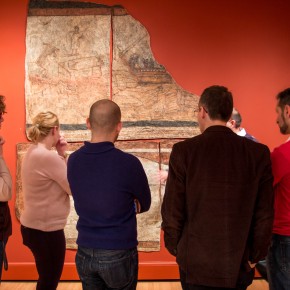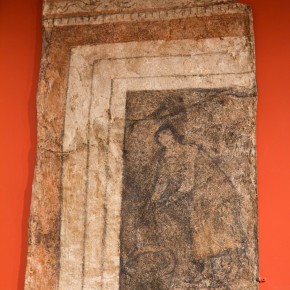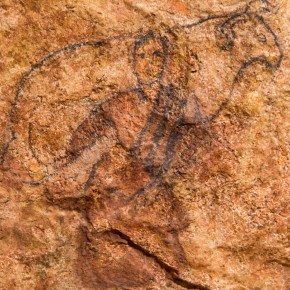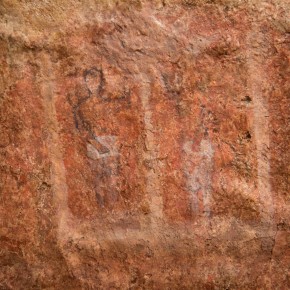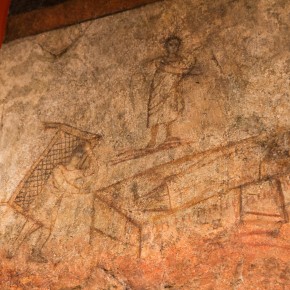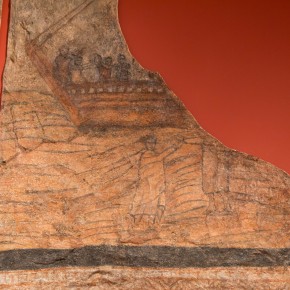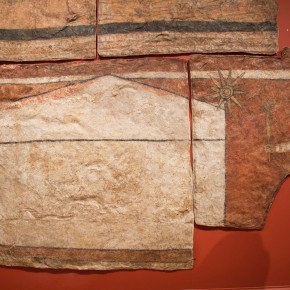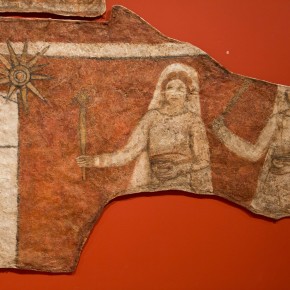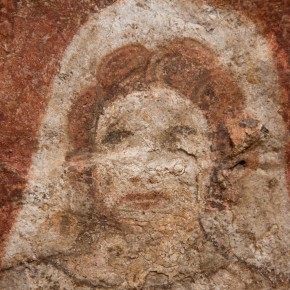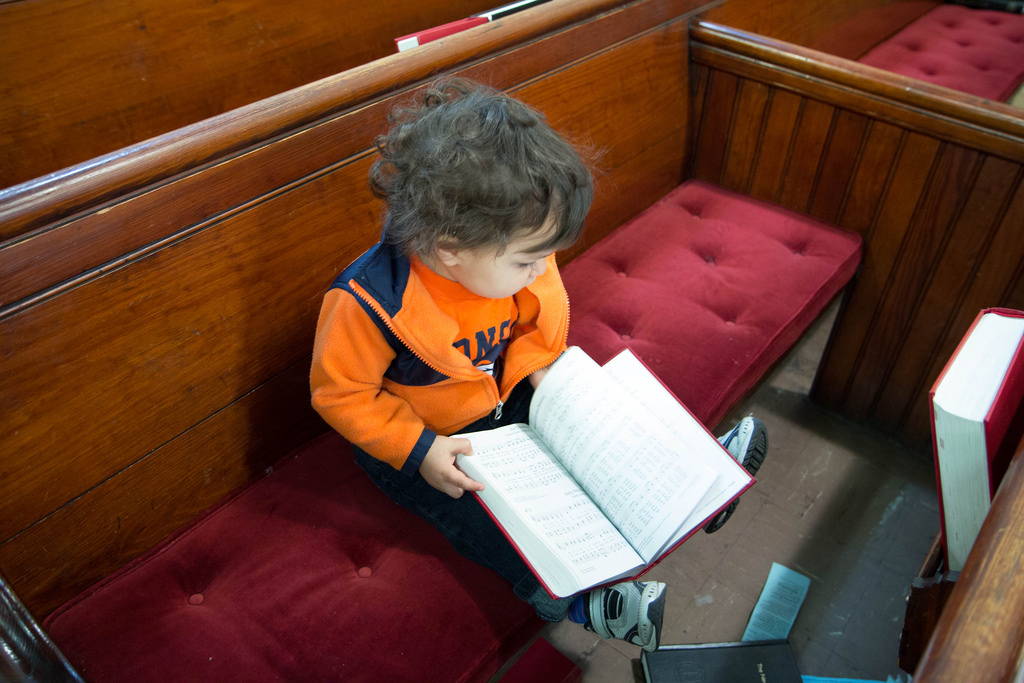
Author: MASadmin
Crossing the River
 I’m sorry for being so quiet recently and I wish I could break the silence now but finding time to write to you has been difficult. There’s so much to say, share, snark, and ponder about! But, first, I do have some news. This last weekend, I spent the weekend speed dating bishops in Philadelphia. Six bishops came to interview 15 first-call candidates (students who recently graduated seminary or are going to this spring). I was worried I would not be assigned anywhere. Instead, I’m going to New Jersey. I’m excited. K is excited. O is excited.
I’m sorry for being so quiet recently and I wish I could break the silence now but finding time to write to you has been difficult. There’s so much to say, share, snark, and ponder about! But, first, I do have some news. This last weekend, I spent the weekend speed dating bishops in Philadelphia. Six bishops came to interview 15 first-call candidates (students who recently graduated seminary or are going to this spring). I was worried I would not be assigned anywhere. Instead, I’m going to New Jersey. I’m excited. K is excited. O is excited.
More to follow!
Walter Brueggemann on the Prophets
Oliver’s view of Augustine
 After a very successful visit to the doctor’s office (O is healthy, on-track, and off the chart in all the things), O and I settled in for some quality time together on the couch. As he sat there looking at “Hop and Pop,” I opened up Augustine and the Catechumenate. Today’s reading, looking at Augustine’s On Catechizing Inquirers, was riveting and O wanted to hear some of it. As I read out loud, he followed along in “Hop on Pop.” I got about a paragraph into the book before O reached out and took the book from me. He looked at me, pointed to a sentence in the book, said a few words, and handed the book back to me. Here’s the line that interested him so much:
After a very successful visit to the doctor’s office (O is healthy, on-track, and off the chart in all the things), O and I settled in for some quality time together on the couch. As he sat there looking at “Hop and Pop,” I opened up Augustine and the Catechumenate. Today’s reading, looking at Augustine’s On Catechizing Inquirers, was riveting and O wanted to hear some of it. As I read out loud, he followed along in “Hop on Pop.” I got about a paragraph into the book before O reached out and took the book from me. He looked at me, pointed to a sentence in the book, said a few words, and handed the book back to me. Here’s the line that interested him so much:
But all these works, while emblematic of Christian evangelization, do not address what Augustine addresses: how to present the “good news” to one who now wishes to become a Christian.
I’m not sure why O picked that sentence but it’s a good one. That’s a question that isn’t really addressed in my seminary education so far. Rather, it’s a question I’ve been working out through my field education/internship/senior seminarian work. Augustine’s work worked because, unlike previous texts, it taught the teacher to inquire about the newbie’s context and to create a conversation that spoke to them exactly where they are. His context, of course, was North Africa near the end of the Western Roman Empire. He’s not in NYC in the 21st century. But Augustine’s question is a great one – and one that I still struggle with today.
For such a time as this [pastor]

Last week, the Metropolitan New Synod released a press release about the implementation of parts of the Synod’s strategic plan. Read it here. Before I toot my own horn about the part I’m participating in, you should read it. I’ll wait. Do do doo do dooo. What are you doing here? Go click. Read it! Got it? Great.
First, I’m going to ignore (mostly) the content of the press release right now. There’s a lot in there and I’ll admit I have a stake in this strategic plan since IMP is the project I’m working on. But I wanted to point out just the overall tone of the press release and who the target audience of that press release is. Doesn’t it just scream “oh hey, pastor; look at me!” All six, to some degree, are painted as being pastor oriented. Two might target lay people (even though IMP should too) but maybe also to members of congregational councils. Either way, it is a press release for pastors and no one else. And that’s kinda sad.
Now I pray that soon, God-willing, I’ll be ordained into the ELCA. I’m not a pastor but I’m close. I’ve been at the synod office; I’ve met a handful of bishops; my paperwork has graced the ancient halls of that great mythological beast run by Formatta Filer. I’m more plugged into the ELCA than others but even I was a little “come on” when I read this. Where is the love for the lay person? Where is the basic attempt to engage with those who are not in the know? Where is the “less is more” mentality that fits a social media world? I’m still scratching the surface with the possibility of what can be possible with social media but I know that this press release isn’t shareable online. It’s an artifact of another era. And that’s what bugs me because it doesn’t need to be. We can do better than this. We can actually create releases that excite people in the pews. I don’t want to see pastors sharing this on Twitter or Facebook. I want to see lay persons, young people, old people, and everyone passing this information online and through the mail. We’ll know we got it right when the pastor isn’t the primary conduit for information coming out of the synod. “Which Game of Thrones Character Are You” shouldn’t be the only thing I see my friends sharing online.
Visit to Dura Europos
Dura Europos, a backwater town inhabited by various empires from 300 BCE to 256 CE, is special because it was mostly preserved after it was sacked. Along the western wall, which was buried with sand to reinforce it during the battle, many relatively complete houses and buildings were found. Included in that was three religious houses, with one being a synagogue and the other a Christian church. The Christian church dates to ca. 240 and its baptistry is located in Yale University (due to how archaeology worked in the 1920s/30s). Pieces from the baptistry are located in Yale’s art gallery. You should go. They are just beautiful. Below are a few pictures from today. You can see more images here.
This is how I sometimes feel inside
Created by Kurt Snyder.
O and the ELW
Snow Blowers and Chimes: Thursday Chapel at Seminary
Turn out was a tad low today.





